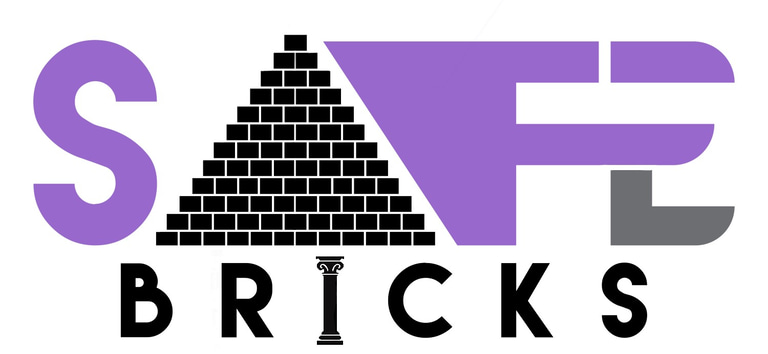Monocouche Colour Guide for Brighton Extensions
Choosing a through-colour monocouche render for an extension is a quick way to achieve a crisp, modern finish that never needs painting—provided you pick the right shade for Brighton & Hove’s coastal light, heritage streetscapes and planning guidance. This guide explains how colour pigments behave in monocouche, what hues complement Sussex brick and bungaroosh, and how to gain planning approval without costly re-submissions.
1. Monocouche in a Nutshell
Monocouche in a Nutshell — Text-Only Version (for easier pasting)
Single-coat, through-coloured render: A premixed blend of cement, lime, polymers and mineral pigments that is applied in one pass and scraped back for a uniform texture.
Scraped finish: After the initial set, the surface is lightly scraped to expose an even grain and eliminate trowel marks, so no additional painting is required.
Low maintenance: Because colour runs throughout the full 15 mm thickness, minor chips are much less noticeable than on painted sand-cement renders.
Ideal substrates: New blockwork, modern cavity-wall extensions and well-anchored backing coats. Avoid applying directly to weak bungaroosh or crumbly historic brick without proper reinforcement.
Key advantages for Brighton & Hove:
Good resistance to wind-driven rain once fully carbonated.
Wide palette of mineral colours that complement local stucco and brick.
Faster programme than traditional multi-coat lime or cement systems.
2. How Pigments React to Brighton’s Coastal Climate
How Pigments Behave in Brighton’s Coastal Climate — Text-Only Version
Iron-oxide reds and browns
Fade resistance: Excellent
Salt staining: Minimal
Typical shades: Terracotta, clay, muted pink
Synthetic yellows
Fade resistance: Moderate (prone to slight bleaching over time)
Salt staining: Medium visibility
Typical shades: Creams, buffs, honey tones
Chromium greens
Fade resistance: High
Salt staining: Low
Typical shades: Sage, olive, soft moss
Cobalt blues
Fade resistance: Very high
Salt staining: Moderate to high (may show white salt bloom if not rinsed annually)
Typical shades: Slate blue, storm grey
Carbon blacks and deep charcoals
Fade resistance: Good, but dark surfaces absorb heat
Salt staining: Salt blooms are very noticeable on dark backgrounds—annual fresh-water rinse recommended
Typical shades: Charcoal, basalt, graphite
Key takeaway: Strong UV and salty air along the Sussex coast can bleach cheaper yellow pigments and highlight efflorescence on darker colours. For seafront plots, choose BBA-certified monocouche blends rated “very high” UV stability and rinse façades annually to minimise salt deposits.
3. Heritage & Planning Considerations
Brighton & Hove City Council typically accepts monochouche on extensions to non-listed dwellings outside conservation areas. In designated zones (e.g., Clifton Hill, Brunswick) the planning team may request:
Muted, mineral-toned shades aligning with existing stucco—think Chalk, Off-White, Pebble Grey.
Texture samples submitted on 400 mm boards showing scraped finish and ashlar lines if mimicking stucco.
Colour swatch references (Weber PRAL M, K-Rend K1, Parex Monorex) included in Design & Access Statement.
Tip: Photograph neighbouring façades and annotate RAL equivalents—planners appreciate evidence-based choices.
4. Colour Families That Work in Brighton
4.1 Coastal Neutrals
Weber “Chalk” (off-white)
K-Rend “Ivory” (pale cream)
Parex “G00” (limestone)
Pairs with: Regency stucco, grey slate roofs, black iron railings.
4.2 Soft Pastels
Weber “Rose-Beige”
K-Rend “Buttermilk”
Parex “P2” (peach-hued)
Ideal for: Side-return extensions behind colourful Kemp Town terraces.
4.3 Earth & Flint
Weber “Oatmeal”
K-Rend “York” (warm buff)
Parex “G10” (light sand)
Complements: Bungaroosh or Sussex flint garden walls.
4.4 Contemporary Greys
Weber “Silver Pearl”
K-Rend “Smoke”
Parex “S65” (mid grey)
Use on: Modern loft-dormer cheeks, zinc roofs and aluminium bifolds.
4.5 Bold Accents* (use sparingly)
K-Rend “Terracotta” feature panels on garden rooms.
Weber “Basalt” plinth band below pale upper coat.
Planning note: Bright hues on principal street elevations often refused—reserve them for garden-facing walls.
5. Sample & Testing Protocol
Order 5 kg sample bags in two candidate shades.
Build a 600 mm-square block panel on site—same substrate & orientation as final wall.
Scrape after 24 h and mist-spray daily for 5 days.
Observe colour in morning sun, noon glare and overcast conditions.
Photograph for planning submission.
Allow at least two weeks before final colour sign-off—pigments mature slightly as render carbonates.
6. Cost Implications of Colour Choice
Shade CategoryPrice ImpactNotesWhites / CreamsBaselineStandard pigment loadMid Buff / Grey+£1–2 /m²Higher oxide contentDeep Reds / Blacks+£3–4 /m²Premium UV-stable pigments; extra bags for colour depth
Labour cost remains unchanged; pigment surcharges are material-only.
7. Maintenance & Cleaning by Colour
Light tones: Show algae sooner; plan a low-pressure biocide wash every 3–4 years.
Mid greys: Best at hiding air-pollution staining.
Dark blacks/chocolates: Salt efflorescence can appear—rinse annually with clean water.
All shades: Avoid aggressive jet-washing; use fan nozzle <60 bar.
Silicone anti-algal wash can extend re-clean cycle by 2–3 years.
8. Case Study: Wrap-Around Extension, Hove Park
Substrate: 7 N blockwork with EPS insulation.
Render: K-Rend K-Pro “Ivory”.
Why chosen: Matched existing stucco yet modern; planning approved first time.
Performance: After four winters, colour delta-E shift <1.5, no cracking. Annual hose-down keeps algae away.
9. Quick-Pick Colour Matrix
Existing House FinishSafe Monocouche MatchAdventurous Contrast (garden side)White stuccoWeber ChalkK-Rend Terracotta base bandRed brickParex G10 (sand)K-Rend Smoke (grey)Flint & brick mixWeber OatmealWeber Rose-BeigeModern zinc claddingWeber Silver PearlWeber Basalt
10. Decision Checklist
Confirm conservation status.
Choose pigment family that flatters main house materials.
Order sample bags, create on-site panels.
Document colour in varying light for planners.
Select approved installer for warranty compliance.
Safe-Bricks Limited © 2025. All rights reserved.




